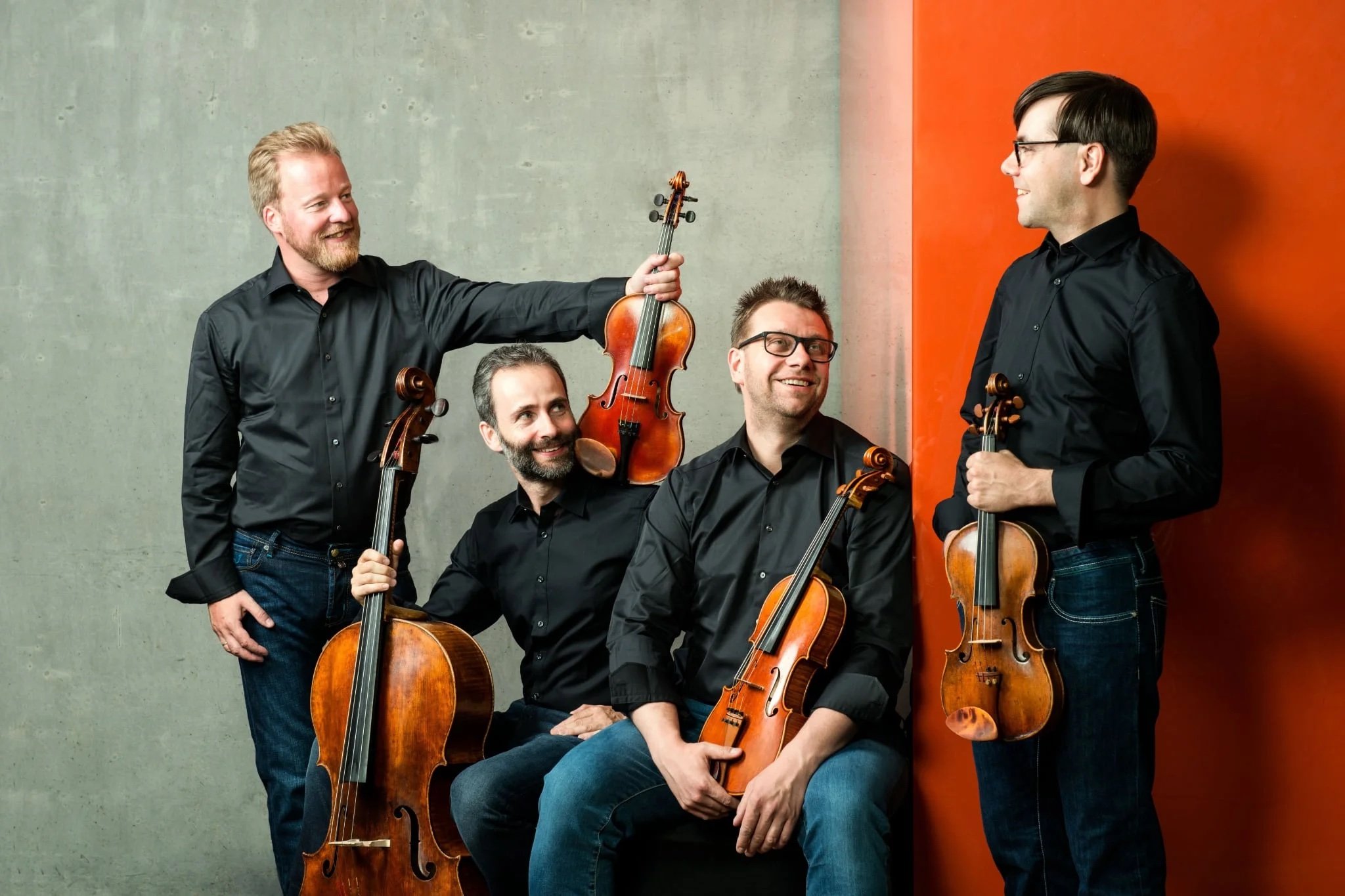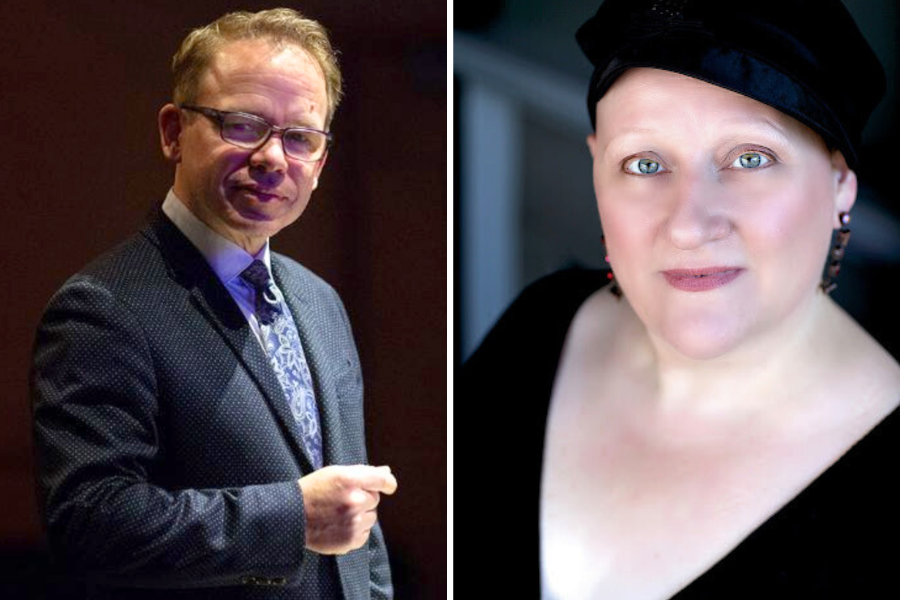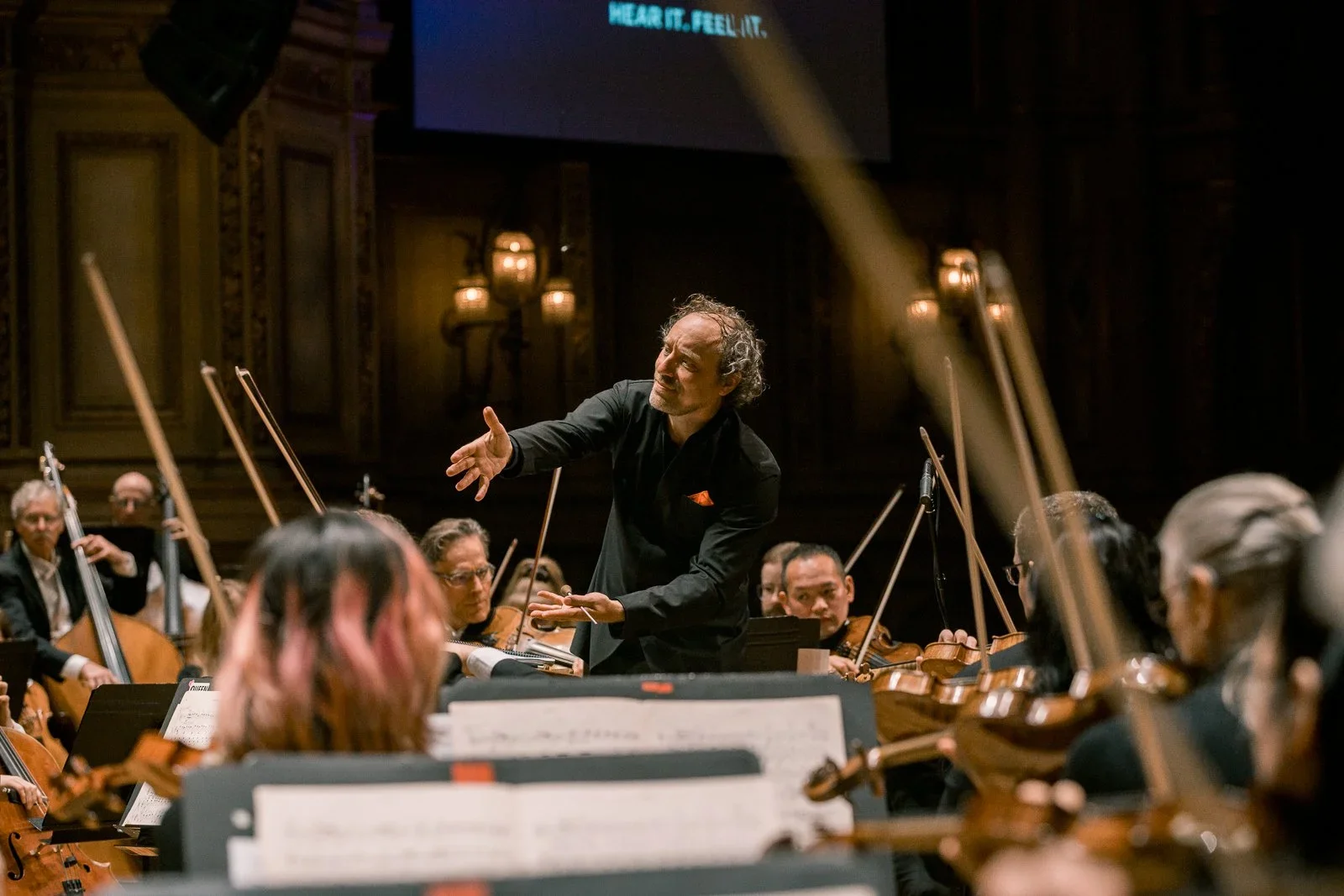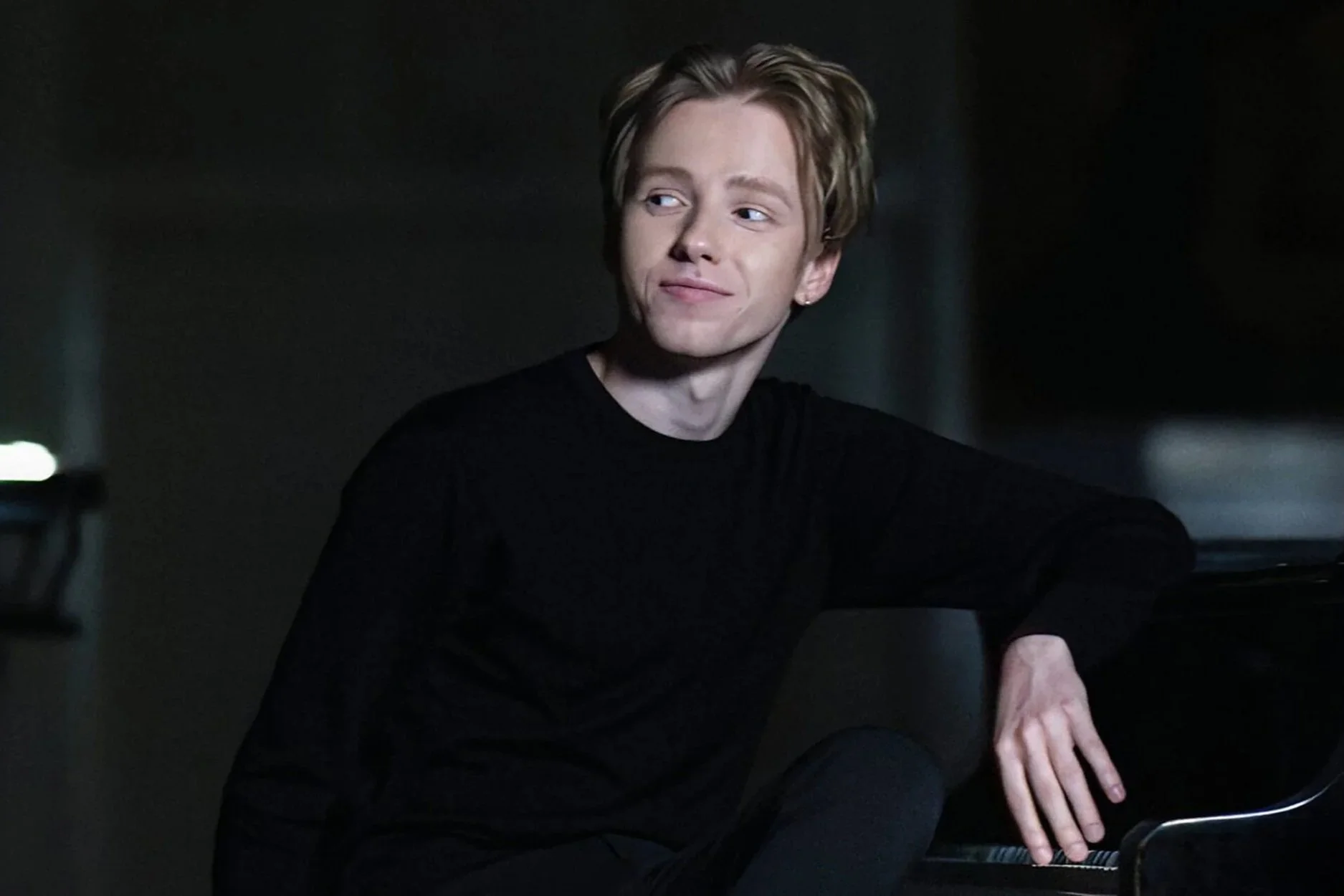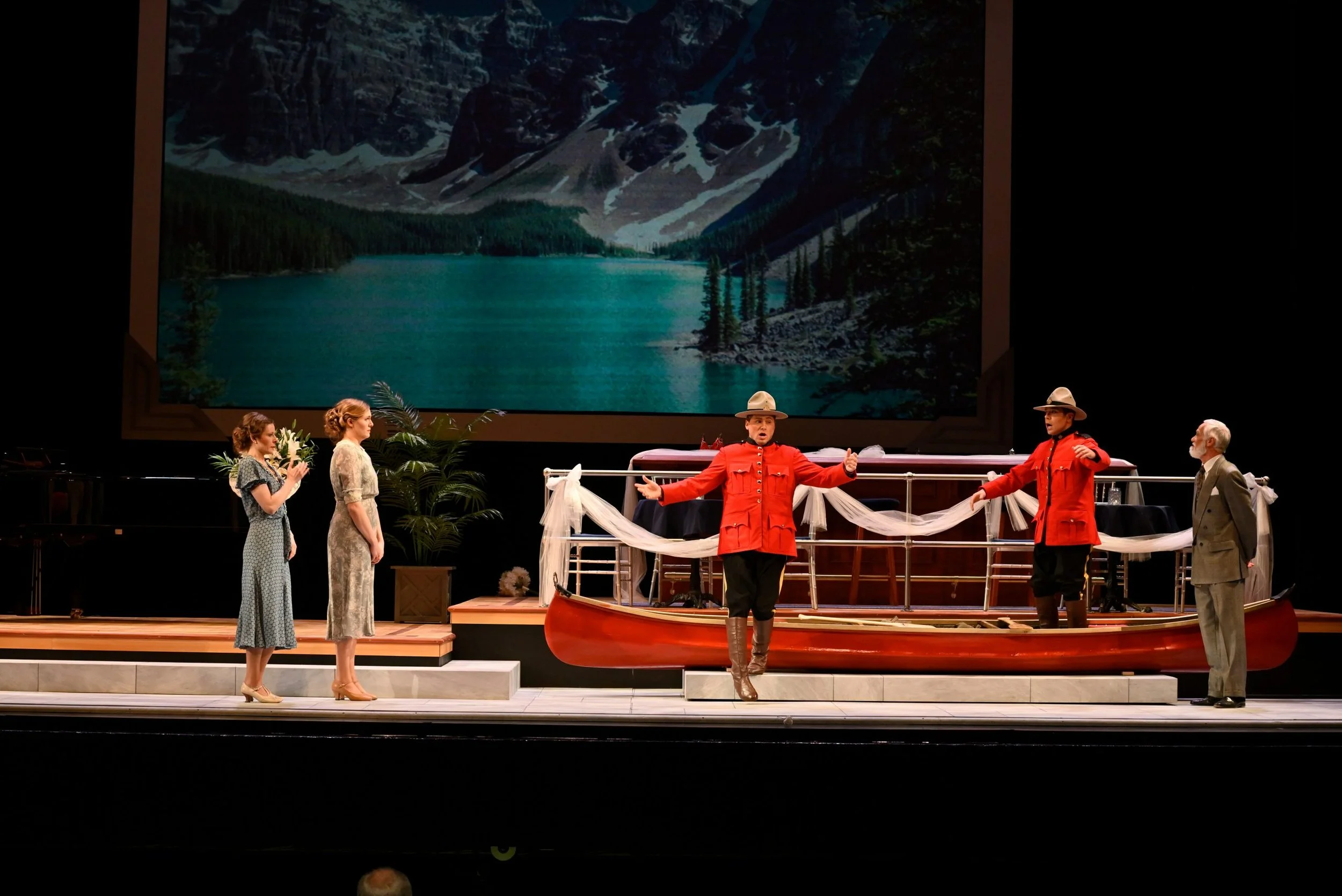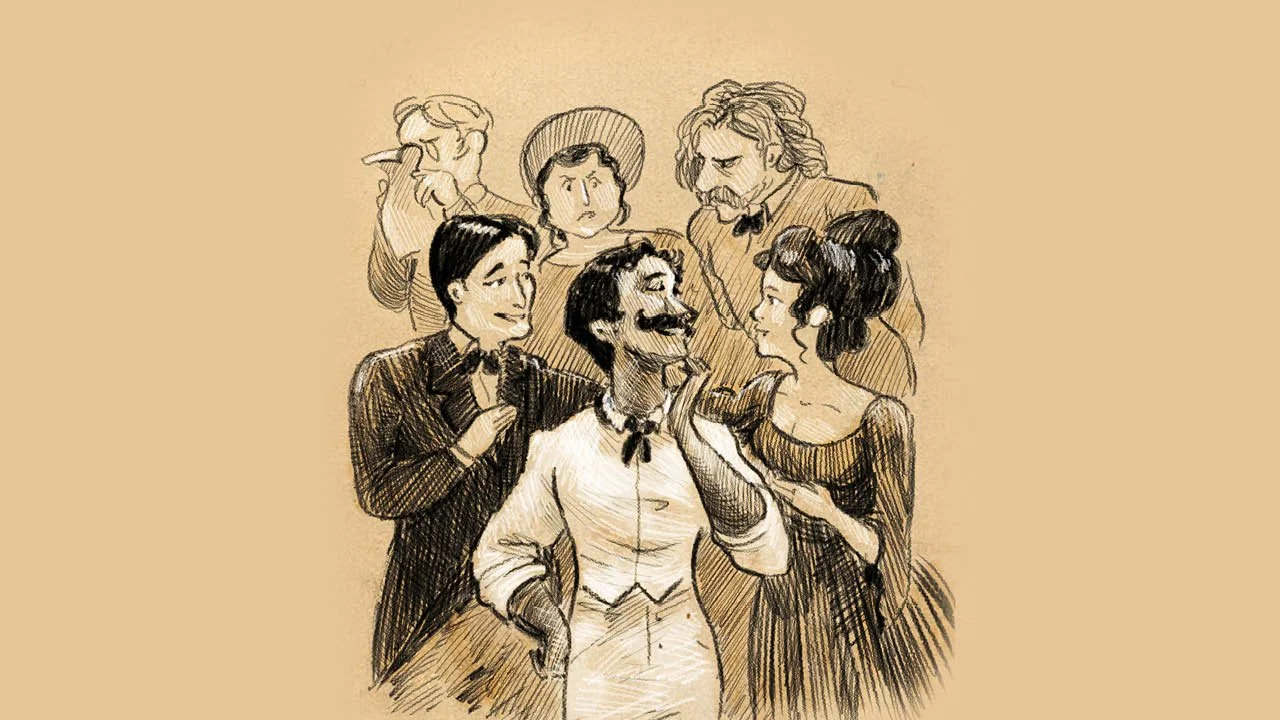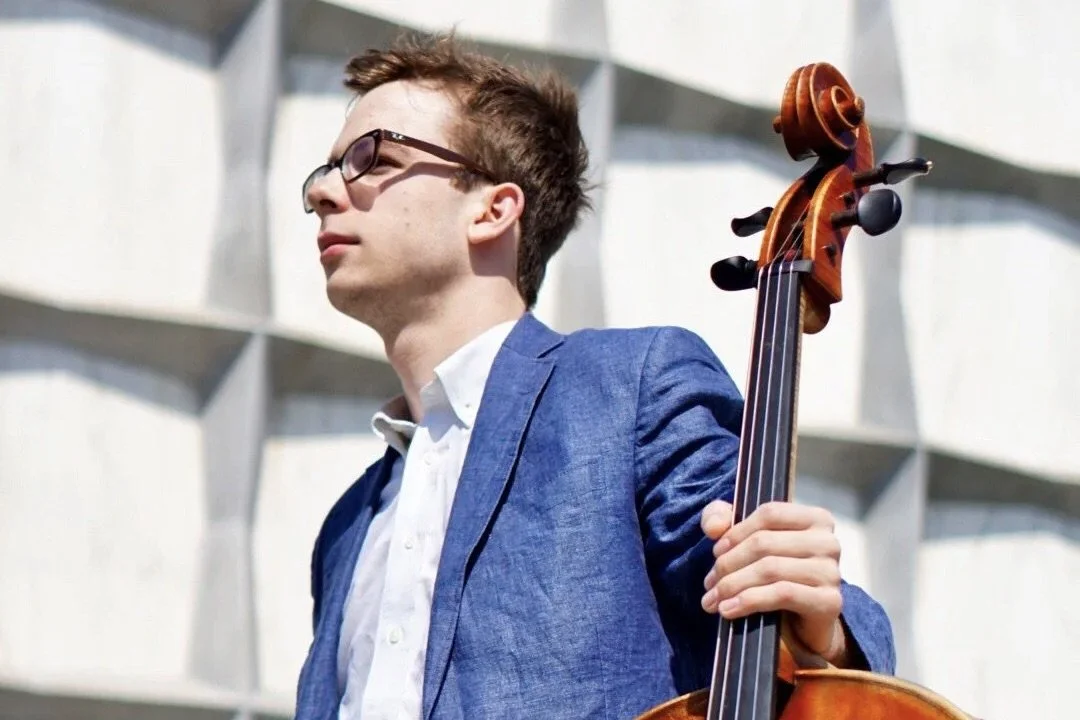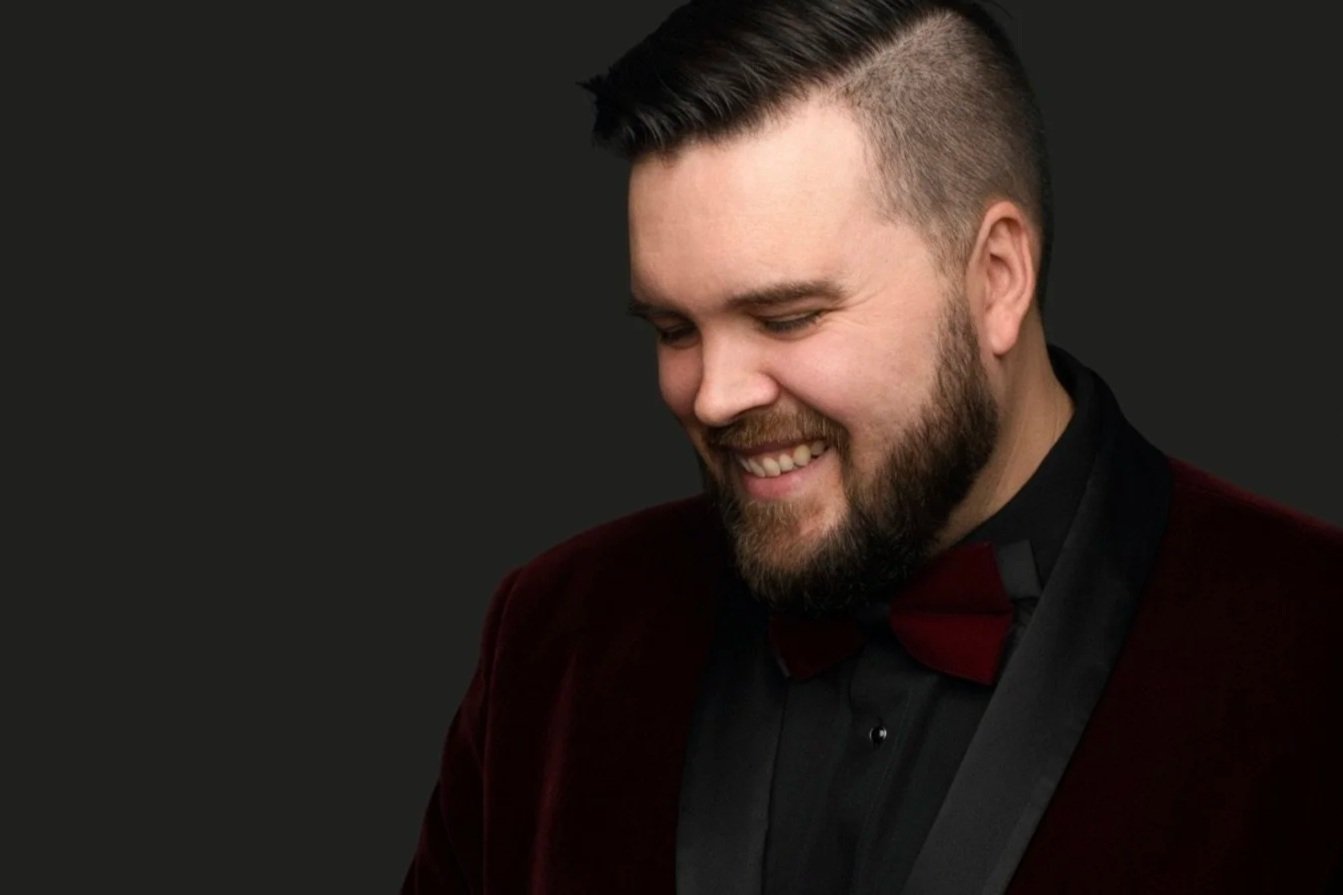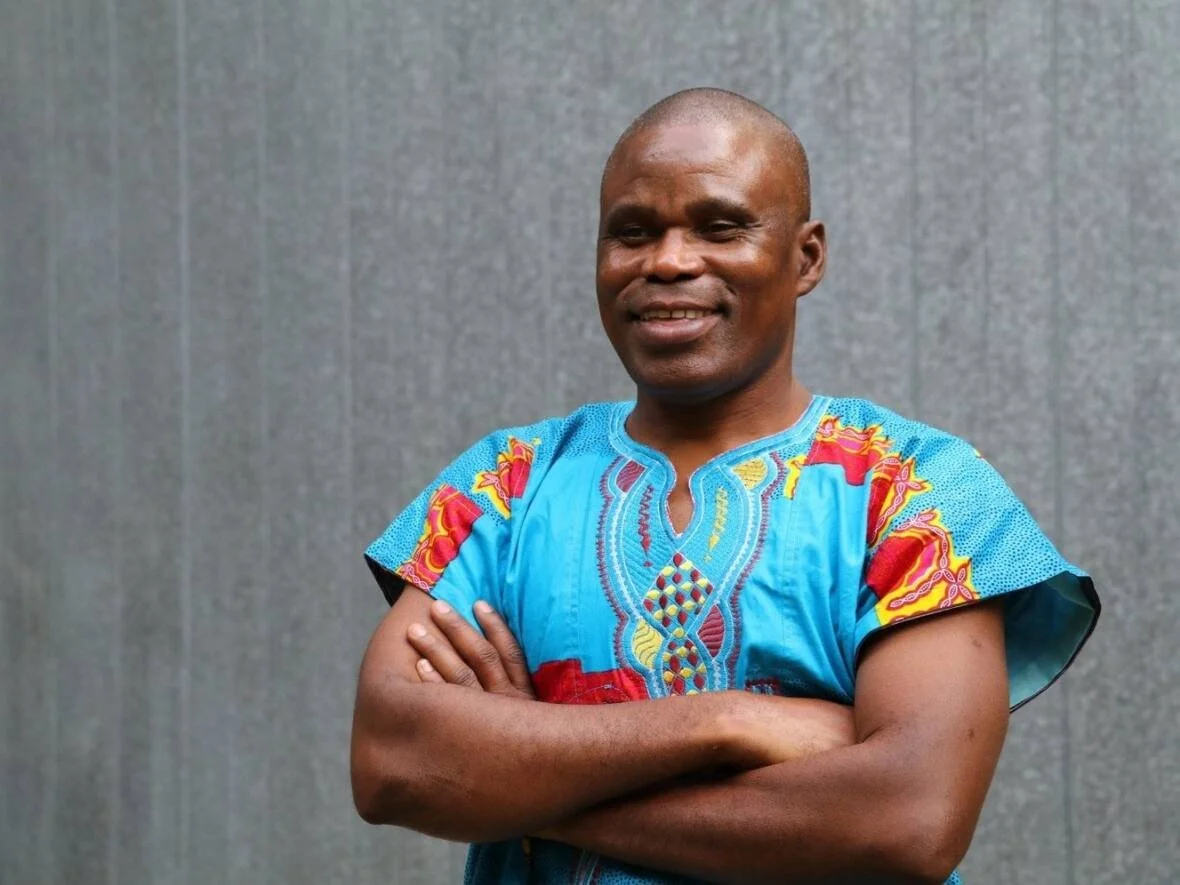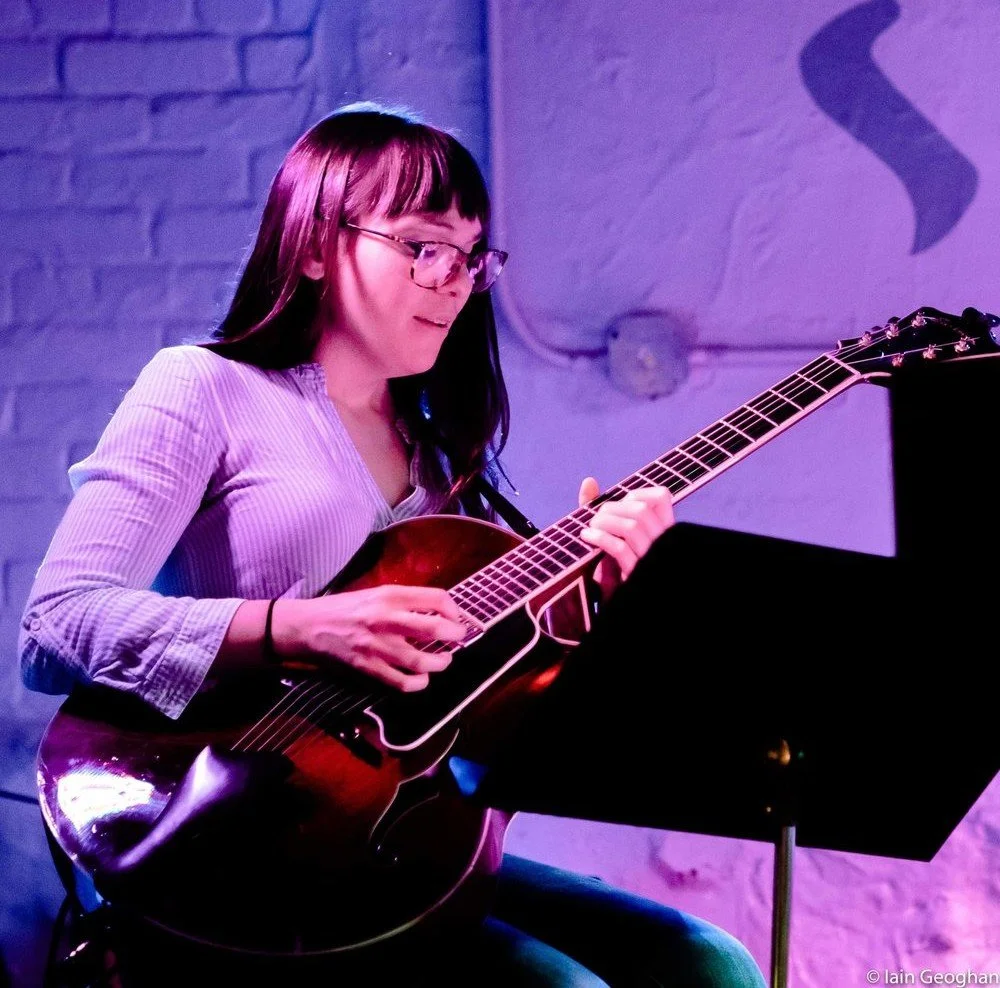Prague’s Zemlinsky Quartet takes cues from its namesake
Playing together for almost three decades, group pays tribute to composer who bridged the classical past and modernism
The Friends of Chamber Music present the Zemlinsky Quartet at the Vancouver Playhouse on October 17
THIS YEAR, THE MEMBERS of the Zemlinsky Quartet celebrate their 29th year playing together—which makes the group’s press photographs rather disconcerting. In those images, violinists František Souček and Petr Střížek, violist Petr Holman, and cellist Vladimír Fortin seem preternaturally youthful, or at least boyish and decidedly unwrinkled.
What’s their secret?
Starting young, says Holman, who points out that his bandmate Souček is a mere stripling of 43. Remarkable as that is, it’s even more unusual that the four Zemlinskys did not find each other in music school. Instead, Holman says, they were just kids from musical families who wanted to explore the string-quartet repertoire and have fun. “At that time we absolutely did not expect to be a professional quartet,” the Prague-based violist says in a Zoom interview from a Los Angeles hotel room. “We started because we liked it, and we wanted to do it.”
Holman also admits that he and his cohorts were not always the Zemlinsky Quartet, having playfully dubbed themselves the Penguin Quartet in a mocking reference to the black jackets and white shirts of other, starchier ensembles. It was under that moniker that the four musicians first came to the world’s attention, winning the Banff International String Quartet Competition in 2007 as well as a host of other major prizes.
“We managed to get the name quite high, but then we heard comments that the Penguin Quartet was a weird name for a professional string quartet,” Holman says, laughing. “We were not willing to lose concert bookings just because of our stupid name, so we decided to rename our group.”
Their first notion, he continues, was “that we would like to have some musical name, not something from ancient Greek history or anything like that. We wanted to have the name of some musician—either a composer or a soloist or a conductor, whatever—so that the name would say something to us, and that it would mean something. Our first consideration, of course, was a Czech name, but there we had a problem. The fact is that in the Czech Republic the string quartet tradition is very big. I think it was in 1890 when there was a Czech quartet established in Prague, which was one of the first-ever professional string quartets, and then of course there was a huge boom after World War II. The problem with that is that all the big Czech names were taken already. They were just simply not free, and the only names available were… Well, from composers of the third level, let’s say. I don’t want to be specific.”
Alexander Zemlinsky, in contrast, was Austrian—but spent some of his most productive time in Prague, where he was the music director and conductor of that city’s New German Theatre for 16 years. Coincidentally, at the time of their name change Holman and his colleagues had been taken under the wing of the LaSalle Quartet’s first violinist Walter Levin, and were rehearsing Zemlinsky’s String Quartet No. 2 under his direction—an apt choice, as Zemlinsky’s string-quartet scores had been more or less forgotten until the LaSalle ensemble made the first commercial recordings of them in the late 1970s.
It was also attractive, Holman notes, that Zemlinsky, who died in 1942, was a kind of living bridge between the classical past and early-20th-century modernism, as well as a musician who managed to reconcile Prague’s German and Czech populations. “When he was in Prague there was the German Theatre and the Czech Theatre, but because of the political situation they didn’t like each other too much,” Holman explains. “But he said ‘Come on, guys, let’s do music together.’ And he brought a lot of [Gustav] Mahler pieces to Prague; he conducted Mahler symphonies, where Czech and German musicians were joining to form a huge orchestra. He also brought [Arnold] Schoenberg’s music and a lot of other Viennese things with him, and so he really did a lot of good work in the time that he was there.”
Naturally, the Zemlinsky Quartet makes a habit of playing its namesake’s music, and in Vancouver they’ll present his String Quartet No. 1 in A major. It’s a somewhat atypical piece, Holman says, written when Zemlinsky was still emerging from the shadow of his mentor Johannes Brahms. But it’s also a case of the student arguably outdoing the master.
“We say it’s the best Brahms quartet,” the violist says with another laugh. “With Brahms, everything else is great. All the quintets, the piano trios, piano quartets: it’s all fantastic chamber music. But the string quartets are not that great. I’m not sure why, but I think he just needed more voices, more sound.”
The Zemlinsky Quartet will also pay further homage to their own mentor, Levin, by programming Ludwig van Beethoven’s String Quartet No. 9 in C major, alongside the under-recognized French composer Germaine Tailleferre’s String Quartet. “Levin liked mostly two things: one was Beethoven, and the other was completely modern music,” Holman recalls. “And one of Levin’s important lessons was to just simply read the score properly, and very much in detail. Beethoven, he was very exact in his writing: if he wrote something in the score, he really meant for it to be done—and the same was true of Schoenberg and the Second Viennese School.
“Then, of course, there’s a lot of important things in addition to the technical part,” Holman adds, and one of these is the social aspect of playing music.
“There are many stories about this famous quartet that had a concert in Carnegie Hall, and so they each bought their own flight, and they didn’t tell each other which hotel they’d sleep in, so that they wouldn’t meet, and they just set up a meeting at 4 pm for a rehearsal, made a great concert, and went back to their separate hotels. But, fortunately, that’s not us! We don’t work like that.”
So they’re still meeting for breakfast before each flight? Holman laughs again. “And for beer, after every concert!”


